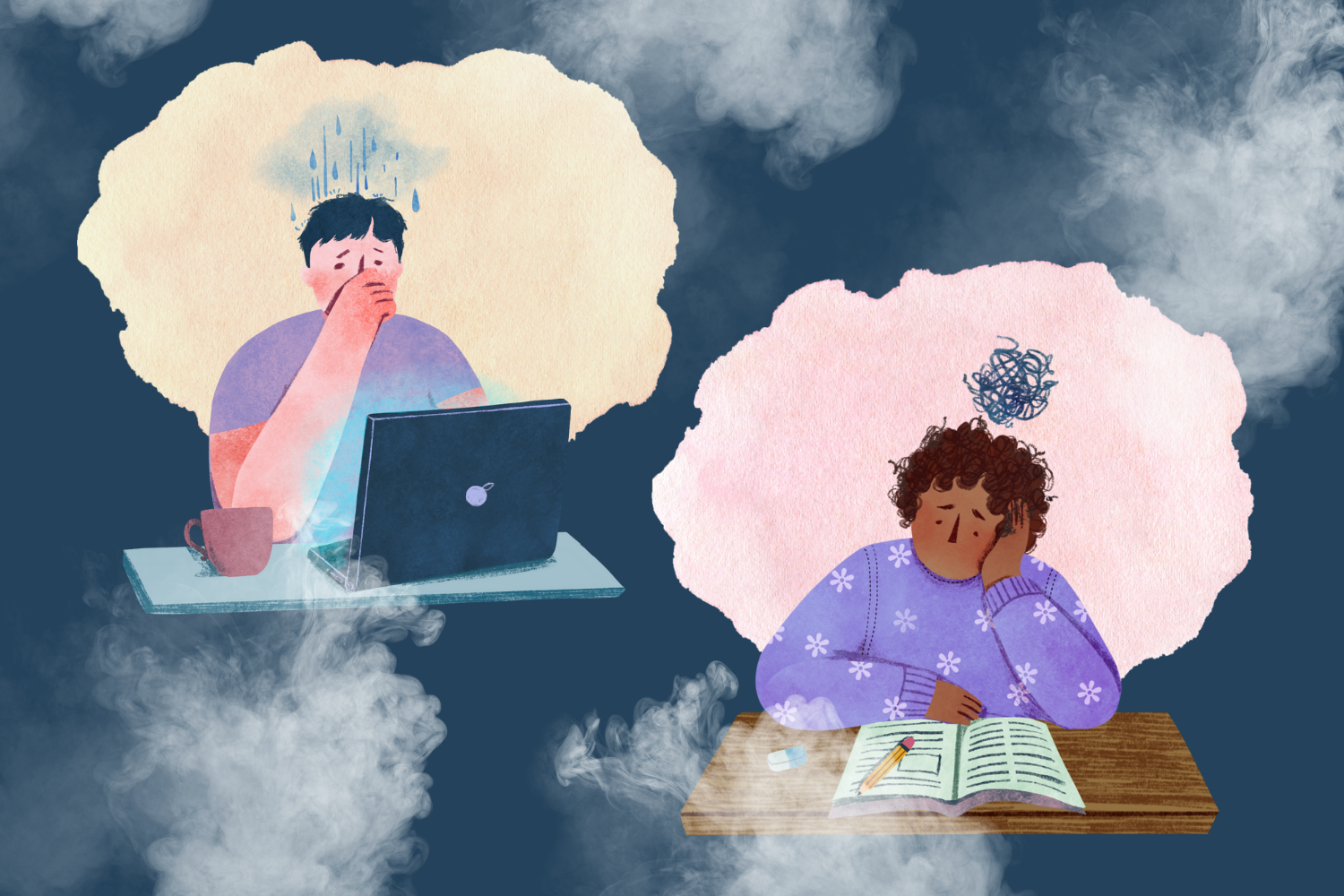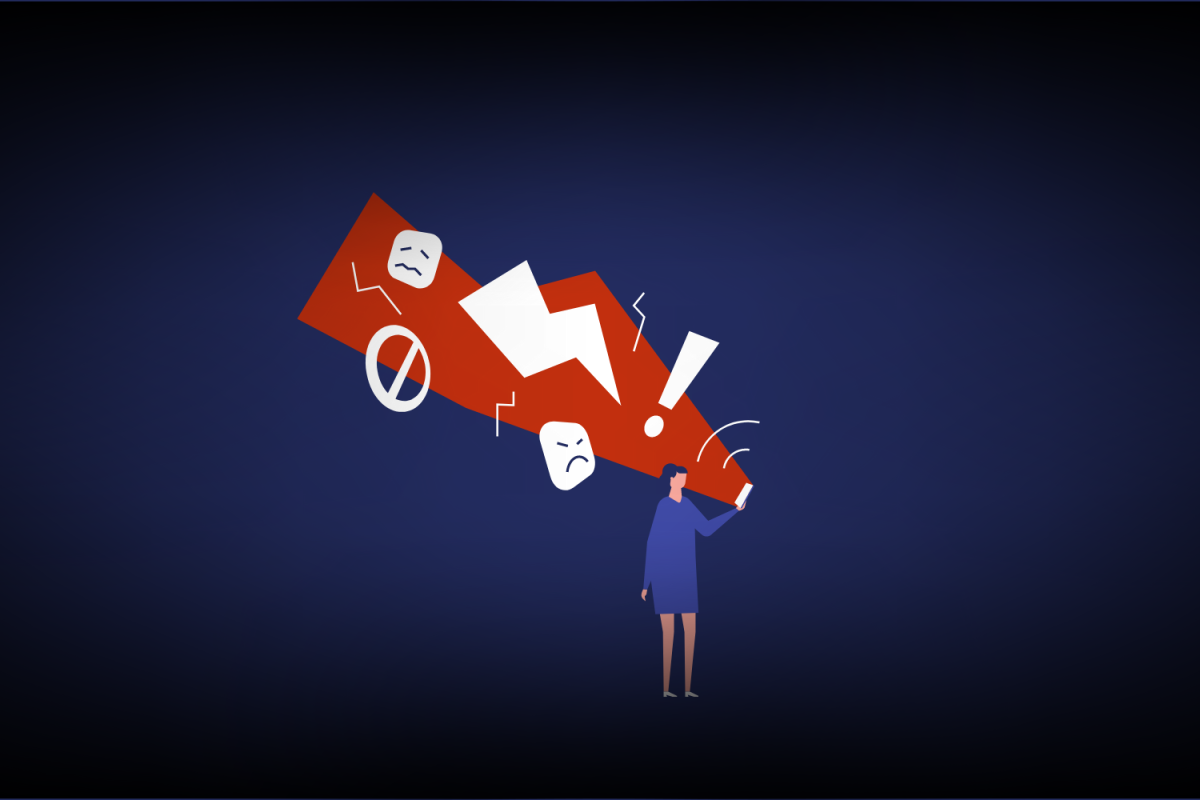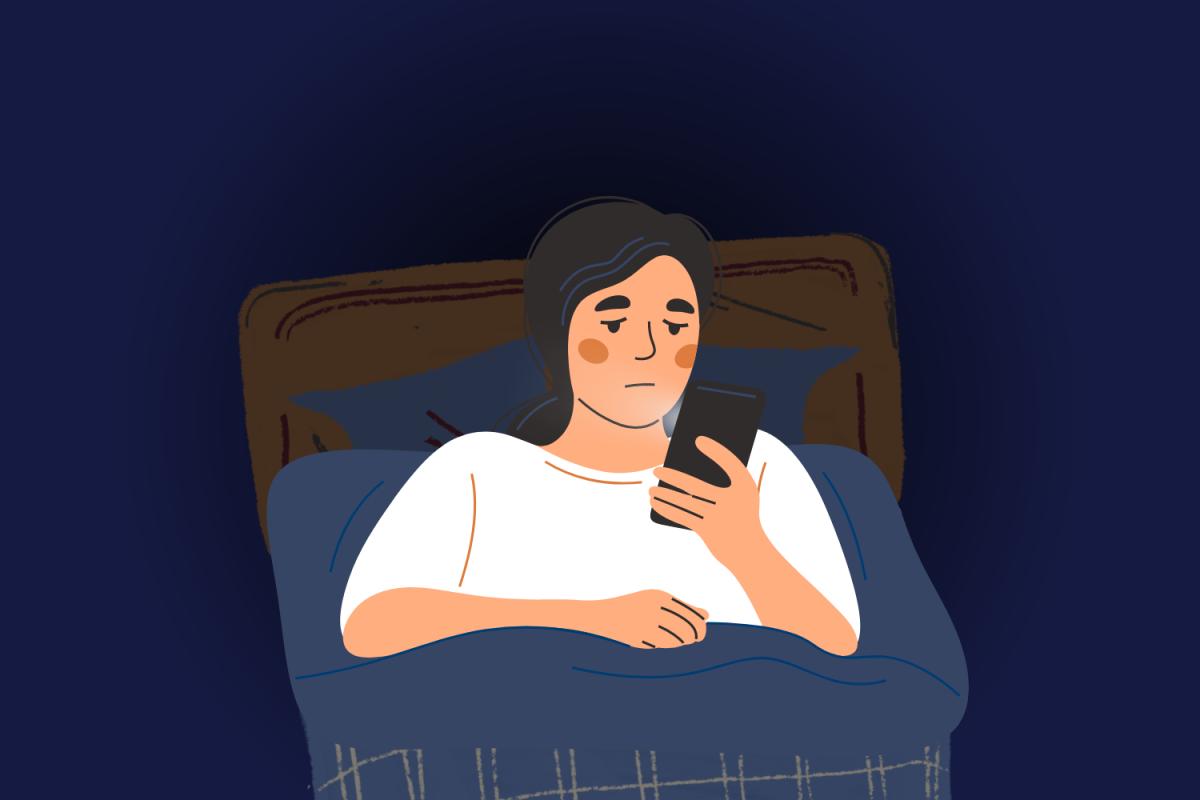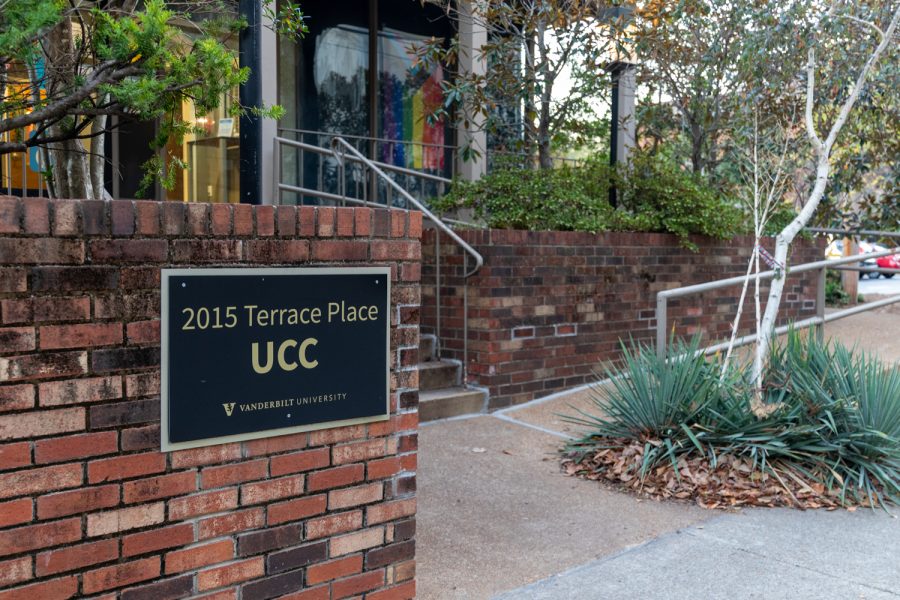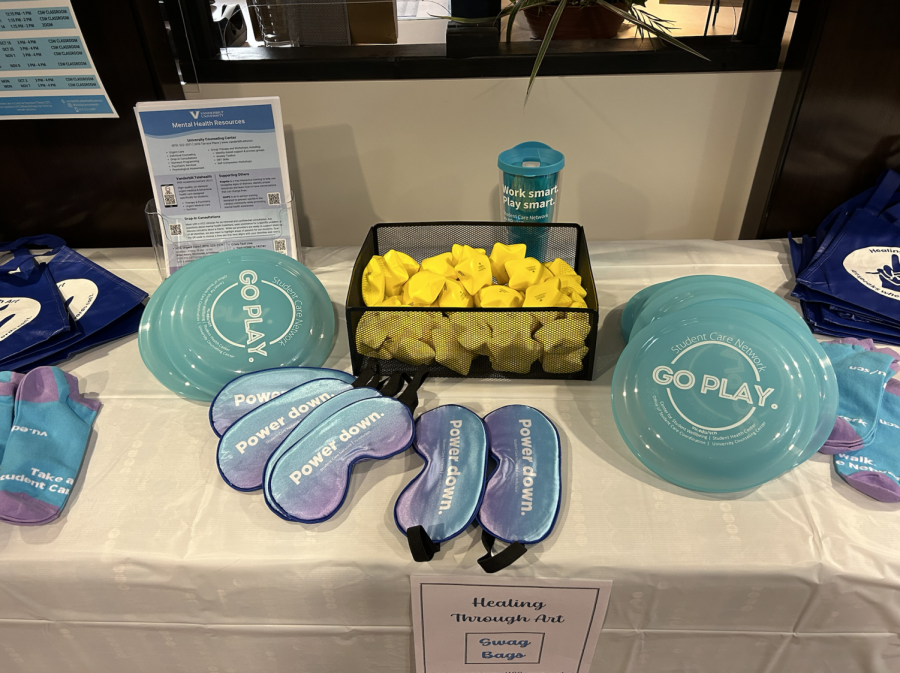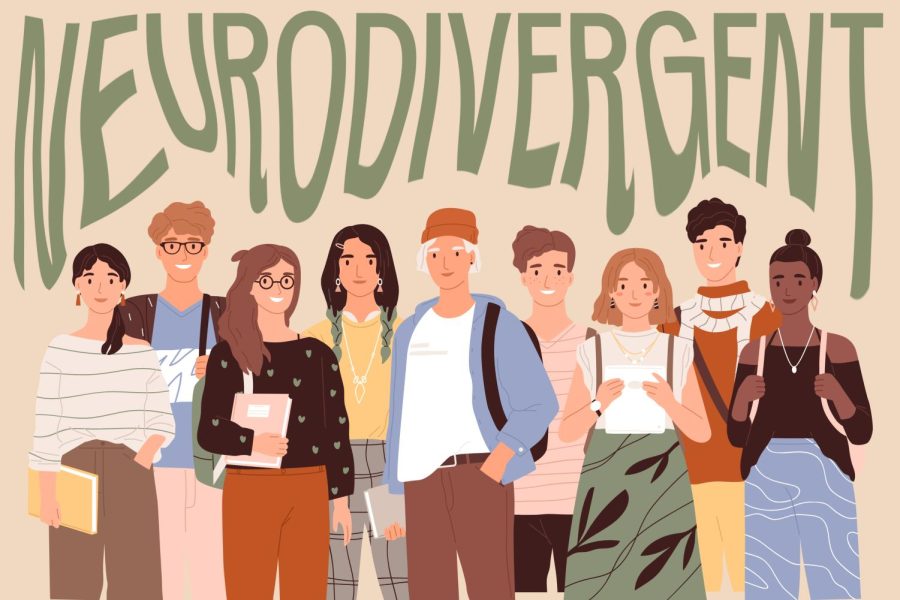UPDATE: This piece was updated at 4:12 pm CST on August 24, 2022, to include a comment from the University Counseling Center (UCC).
Last year, I almost lost my mind.
It was my first year at Vanderbilt. I arrived on campus wide-eyed, ready to take on whatever challenges and excitement came my way. Like most students here, I attended an academically rigorous high school, I had straight As my whole life and I had always found ways to get involved with my school community. So, as I entered college, I figured I would have no trouble doing all of the same things.
At first, it seemed like my plan was working. I made friends almost the moment I stepped on campus, I joined a couple of clubs and, for the most part, I was keeping up in my classes.
It wasn’t until about halfway through the first semester that I hit a roadblock. Well, more accurately, I hit a reinforced concrete wall known as my Intro Statistics class. For the first time in my life, I was doing terribly in a class. The straight-A student I’d been in high school failed her first two statistics tests. I wasn’t the only one—I knew of a few other students who had failed one test—but my struggle felt personal. I had been warned from the beginning that the class was a “weed-out” course, meaning that it was designed to either make or break students. I always thought that the people who warned me were exaggerating, but I quickly learned that weed-out classes were indeed a part of the Vanderbilt experience that was as mentally taxing as people claimed. I started to lose more points on my homework assignments. Office hours turned into the professor reteaching me entire concepts. Eventually, I couldn’t even keep up during the lectures.
When a class was difficult for me in high school, I would just study even harder, putting my all into my work to get myself out of a hole, and my efforts usually paid off. However, in statistics, it seemed like every time I half-understood something, another entirely new concept that was out of my understanding showed up on the next assignment.
My failing grades in statistics affected my work in my other classes as well. Everything started to get worse all at once, and my grades began to drop. I started staying up until 3 or 4 a.m. to finish work, and then I would get up at 7 a.m. to get ready for my 8 a.m. classes. I started skipping meals and even began drifting away from my friends. I was spiraling, but more than that, I didn’t know how to stop.
Eventually, it all became too much for me. I remember one day, my alarm went off at 7:30 a.m., after just over two hours of sleep. I had stayed awake until 5 a.m. finishing my homework, a new record. I was exhausted, but I forced myself to sit up and turn off my alarm. I started to stuff notebooks and pencils into my backpack when I noticed my statistics homework sitting on my desk. I had stayed up all night, yet I still hadn’t finished it.
In class, I could barely stay awake, let alone follow along with the lecture. I remember my professor talking to me after class and asking how I was doing. She sat with me for a while and told me that I still had a chance to do well if I really tried hard. I nodded and smiled at her, but then she calculated my current grade. The number was even worse than I had thought. She must have seen the look on my face because she assured me that I could turn things around. I remember saying thank you, but the entire walk back to my dorm after class, I felt like my head was underwater. People’s conversations faded into noise, and it took everything in me to just put one foot in front of the other.
When I got back to my dorm, I set down my bag, then sank to the floor. I don’t really remember how it started, but I remember hyperventilating uncontrollably. Tears streamed down my face, and my body felt like it was rejecting itself. I was locked into a hunched position, my fingers digging into the fibers of the new rug that my roommate had bought to brighten up the room. My roommate found me on the floor to what I later learned was about a half hour into my first ever panic attack. She sat with me until I calmed down. I eventually got myself into a seated position and took some sips of water. I glanced at the clock and realized that an hour had passed since I got back to my room. I didn’t even have time to process what had happened or answer my roommate’s question—“Are you ok?”—before I was out the door and headed to my next class.
After my panic attack, I wasn’t really myself anymore. I started to not get up some mornings. I started to miss even more meals—some days, I didn’t eat at all. My roommate became increasingly worried about me, but I would just tell her that I was fine, if I responded at all. My days consisted of going to maybe one class, turning in assignments late and laying in bed for hours.
As if I hadn’t suffered enough, my boyfriend broke up with me at the end of the semester. By the time the second semester rolled around, to say I was a mess was an understatement. I had never sunk so low in my life; dealing with a breakup, struggling in my classes and feeling like I didn’t belong at Vanderbilt was too much for me to handle. My friends and my parents got together and told me that I couldn’t continue into the next semester the same way I ended the first semester. They were worried that I might be depressed and I agreed. Searching for any way to get out of my slump, I set up a meeting with the UCC.
I first started meeting with my assigned therapist in January 2022. I had never been to therapy before, so the entire experience was new to me. I was nervous, but to be honest, I knew I needed to do something because how I was living wasn’t okay. I liked the therapist, but it felt like we weren’t connecting the whole time. Rather than feeling comfortable sharing, I had a terrible feeling that my therapist was watching the clock every time I opened my mouth. As I continued to meet with her throughout the semester, the feeling of being on a timer started to grow and, eventually, my therapist would interrupt me mid-sentence to tell me we were out of time.
When I tried to approach my UCC advisor about the issues with my therapist, she told me to bring up the concerns in our sessions and try to keep pushing since I was making emotional and mental progress. She was right: I wasn’t still laying in bed all day, but I didn’t exactly know if that was a result of the UCC or my friends and family encouraging me to keep going. I did as my advisor suggested though and, at the end of my next appointment, I told my therapist that sometimes I feel like we don’t address everything I mention. I asked what she suggested we do about it together.
She looked at me, then the clock, and said, “You could talk less.”
Surprised and unsure of what to say next, I just stared. My therapist continued, “You could just give me less information, and I’ll tell you if I want more details.”
That was my second to last UCC appointment. I went to one more appointment but found myself focusing on speaking less often. I was more concerned about not bothering her than my own mental health. I ended up skipping my last two scheduled appointments. There came a point where I thought, “So apparently, therapy isn’t a place to be heard,” and, after that, I couldn’t bring myself to sit through another appointment.
When I began to struggle with mental health, I wanted to find resources. I wanted to reach out and get help, I wanted to feel better, and I wanted to have the energy and liveliness to attend classes and make friends. The UCC didn’t provide me with the relief I needed.
When I was depressed and suffering, the last thing I could manage or afford was searching for outside resources and private practice therapists. Without reliable transportation and with little desire to get out of bed in the morning, dragging myself to an off-campus office wasn’t really an option. The people around me ended up getting me back to a sense of normalcy. Thankfully, I had a wonderful, supportive friend group who worked really hard to bring me out of my own head. My parents also happen to live in Nashville and being able to go home on the weekends to get away from campus and the stress it brought was really helpful.
What got me through my hard time, though, is not feasible for most students on campus. Not everyone’s parents are near enough to provide emergency relief from stress, and not everyone is so lucky at forming close friendships quickly. It can be especially hard for first-years, who are thrown into a new environment of autonomy, responsibility and adulthood from the moment they step foot on campus.
When I sought out help with the UCC, I was 17. I was in no way an adult, but I was facing real, heavy, adult emotions and situations. I needed someone to provide care and support like I was a person struggling, not like I was just another person to check off a busy schedule.
I don’t want another student at Vanderbilt to go through what I went through—or something worse—and make the brave decision of getting help at the UCC only to be let down. If there are so many students requesting help at the UCC that the staff has to watch the clock to make sure that they get to everyone, then there is a problem with the environment on campus in general.
Yes, Vanderbilt is an academically rigorous school, and yes, students should be prepared to work hard. But they should not have to suffer to succeed. And when all of the stress and pressure from school affects students’ mental health and they do seek out help, they deserve to be treated like they matter.
On Aug. 24, a university representative emailed The Hustler a statement from Student Affairs, highlighting some of the changes the university has made to improve the Student Care Network.
“This year, Student Affairs has continued to focus on enhancing and expanding our Student Care Network, including by hiring ten new staff members,” the email reads. “Increasing access to health care for students is a priority for the university, and we understand the desire from students for expanded services and a holistic approach to providing care. We are committed to working in the best interests of our students and providing a support network to help them manage a range of challenges.”


